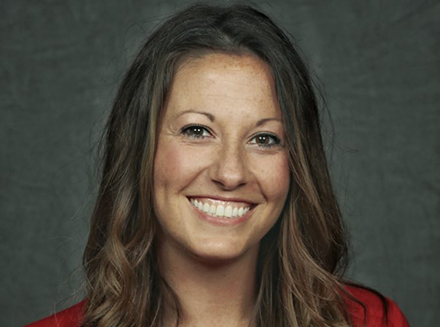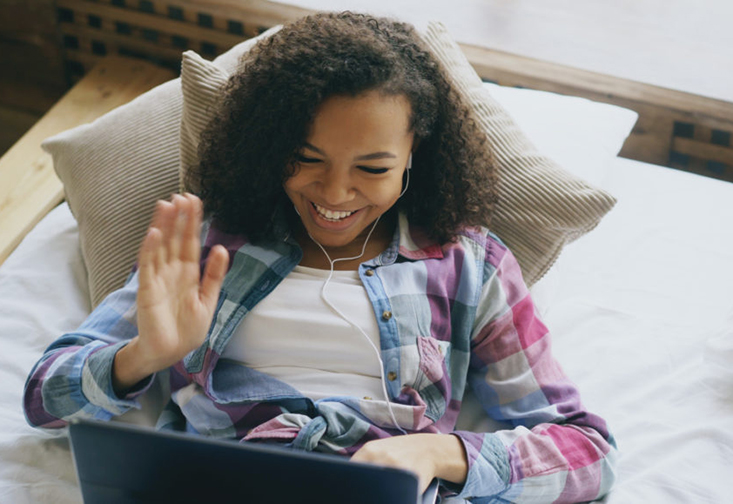On April 1, Governor Ron DeSantis issued a stay-at-home order for all Floridians to prevent the spread of the novel coronavirus. For weeks, however, Americans from coast to coast have practiced social distancing, physically separating themselves from people who don’t share their home.
When done right, social distancing can seem rather anti-social. Most people stay at home. Shoppers stand six feet apart in grocery store lines. Friends give air high-fives instead of their usual hugs.
But social distancing doesn’t have to be lonely, says Lindsey Rodriguez, an applied social and health psychologist at USF St. Petersburg. Rodriguez studies social connections, including research on topics such as communication and conflict resolution in romantic relationships. As many students, faculty and staff find themselves at home, with or without loved ones, Rodriguez spoke to us about ways people can maintain social connections despite physical separation.
Q: Why is it important for people to maintain social connections during this difficult time?
A: Wanting to create and maintain social connections is embedded in our DNA. That’s what makes sheltering in place so difficult. Fortunately, there are things we can do to connect with others while making sure we (and others) are safe at the same time.
What are some of the best ways people can cultivate strong social connections with their friends and family despite practicing social distancing?
Living in Florida, some of the chaos surrounding the pandemic reminds me of how people behave while preparing for hurricanes. Fortunately for us, this situation is different in that we are not losing power, A/C or WiFi. This is the key I think. We can use online or phone-based platforms like FaceTime, Zoom and Google Hangouts to visit and connect with others. Set up a daily chat or do it a few times a week with people whose company you really enjoy. Call it Coffee Time or Dessert Time or something fun and meaningful.
You can also watch Netflix at the same time as your friends – while video or audio-chatting – using Netflix Party. Many years from now we will be reminiscing about how we got through this crazy time!

Should we prioritize things like video calls during this time? I’m wondering if there’s a benefit to video calls over, say, texting or chatting over the phone?
I would say yes, absolutely. Especially in this time where our levels of social fulfillment might be a little lower than usual, prioritizing video connection allows us to see other people’s nonverbal cues, such as facial expressions and body language, which matter so much. I’m not sure whether studies have looked at this, but anecdotally I would bet we get a stronger hit of dopamine when we see another person laugh compared to when we hear it on the phone (and definitely more compared to when we see it in a text).
Conflict is not uncommon for people who are currently spending a lot of time in close proximity to their family or roommates. What advice do you have for ways people can avoid or resolve conflict when it does arise in these circumstances?
We are all experiencing heightened levels of anxiety and stress during this unprecedented time. That’s why doing things like establishing a routine, getting a little exercise and engaging in self-care are so important. The better we feel individually, the better we will be in the context of our close relationships.
For people who are living with family members, roommates or relationship partners, you may notice the potential for increased tension. In these cases, I recommend waiting for a time when all parties are calm and in a good mood before bringing up how you feel. The goal is to resolve issues together — as team members rather than as opposition. Also, it helps to think about where the other person might be coming from, or what a neutral third-party might say about the issue. These mental exercises can help increase empathy and overall relationship quality.
Are there certain habits or behaviors people should be cautious about during these difficult times?
It might currently be easy to fall into a pattern of doing things that are easy. For now, I’d say do what feels right to you as long as they aren’t a detriment to your health or the health of others. However, if you notice that you spent 10 hours on the couch watching Netflix and then you feel poorly about it afterwards, it can help to find alternatives that might help you feel better at the end of the day.
Right now, I recommend doing things you really enjoy, while remaining socially distanced. Consider it “Your Favorites Week.” For example, I have made some of my favorite dishes and desserts while home, because it brings me happiness. I’ve ordered takeout from my favorite restaurants. I am finding time for things I have wanted to do (such as organize my closets) or skills I have wanted to learn (such as photography). Consider taking a free online class, learning how to make new recipes, do puzzles or play your favorite board game with your family at home or friends online. At the end of the day, there are many positive things that can come out of this time.
Is there any other advice you want to offer people who are struggling with the recent changes and circumstances?
Remember to be compassionate to yourself and each other. This is such a chaotic time and we are learning how to adapt to a ‘new normal.’ Don’t beat yourself up if you feel like you are not incredibly productive by filling your social media threads with pictures of new gardens, home renovations or new projects completed at work or school. What you see online is everyone else’s highlight reels, not their reality. It is not about competing with others, but rather taking care of ourselves, families and friends.
And if you find yourself struggling, that is okay. It is okay to not be okay. We are all taking this one day at a time and everyone responds to stressors differently. Of course, if you find yourself overcome with feelings of depression or anxiety, or that you are using substances to deal with negative feelings, or that home isn’t the safest place to be, the following resources can help:
USF St. Petersburg Wellness Center, 727-873-4422
Center for Disease Control and Prevention (CDC) tips for managing stress and anxiety.
Community Action Stops Abuse (CASA), 727-895-4912
National Domestic Violence Hotline,1-800-799-7233
